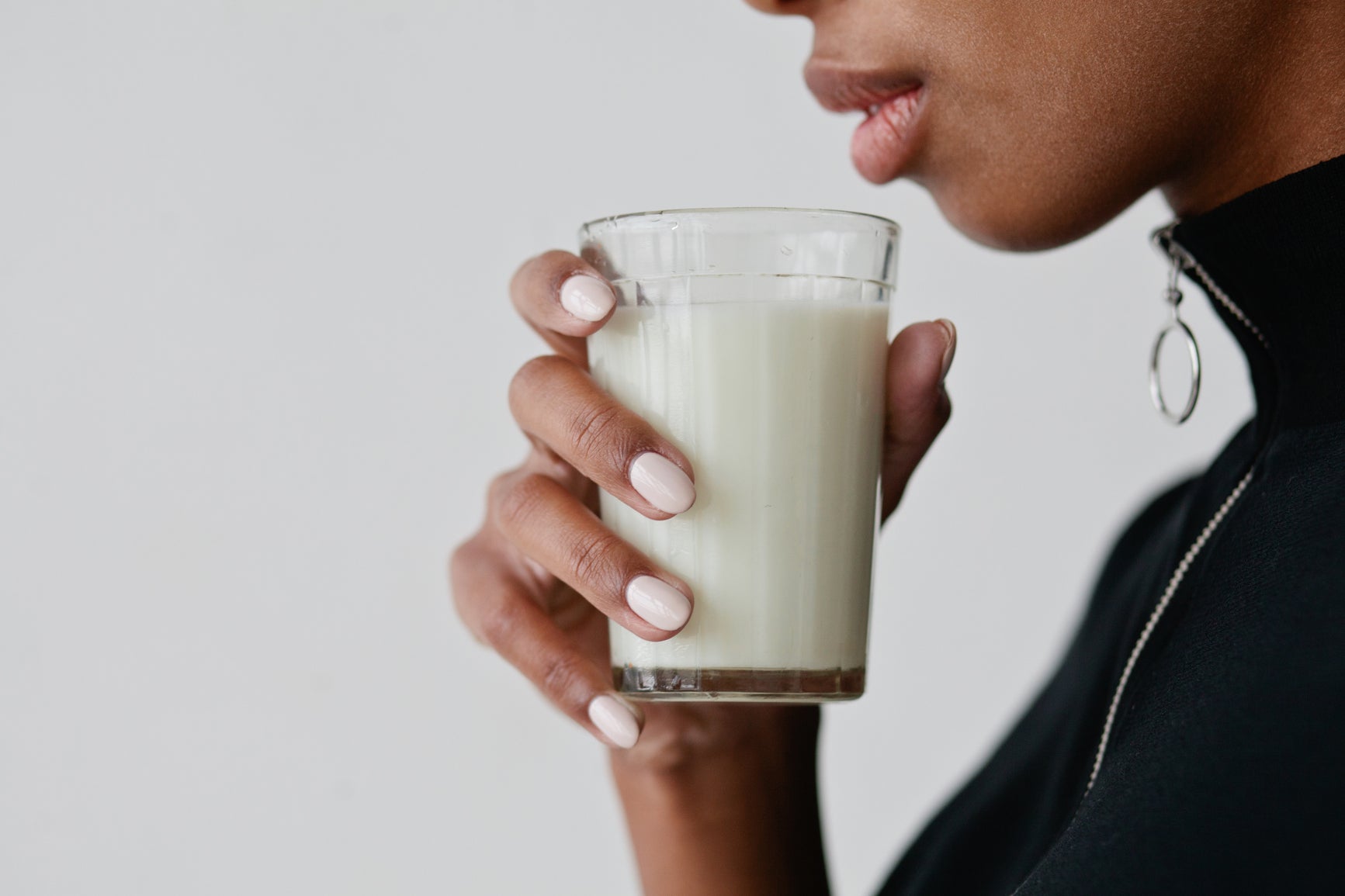Many diets claim to help improve your skin and there is one food group that is consistently at the forefront of the conversation - dairy. In the past, dietitians and dermatologists relied on outdated and inconclusive studies from the 1960's about the connection between dairy, skin, and hormones. However, with updated research, the connection between dairy and hormonal acne is becoming increasingly correlated.
The milk and dairy products we consume are collected from pregnant female cows. This milk is meant to nourish the nursing calf and stimulate growth. Casein and whey are the proteins present in the mother’s milk which nourish the calf and stimulate growth. More recent research has shown a correlation between whey and casein proteins and an increase in the production of human hormones. The hormonal imbalances triggered by consuming dairy products can affect the skin by appearing as acne and/or allergic reactions.
Other properties of dairy products can affect human hormones. Milk is high in inflammatory properties and has a high sugar content. Both of these things can lead to skin issues like acne vulgaris.
How Does Dairy Cause Acne?
When examining dairy’s effect on the skin, it is important to recognize where dairy is present- especially if you are targeting and eliminating it from your diet.
Many surprising foods contain dairy such as processed foods and packaged crackers. In addition to more traditional products containing dairy such as milk, cheese, and yogurt, the following products may contain traces of dairy:
- Processed meats (chicken nuggets and deli meat)
- Granola
- Hot dogs
- Crackers and bread
- Potato chips
- Tomato sauce
Lactose
Most people are familiar with the prevalence of lactose intolerance: the inability to digest the naturally occurring sugars in milk, associated with dairy products. 65% of people report lactose intolerance with symptoms including but not limited to:
- Diarrhea
- Flatulence
- Abdominal pain and/or bloating
- Indigestion
- Nausea
Lactose intolerance or sensitivity can also lead to acne flare-ups. However, you do not need to have an intolerance to dairy to experience breakouts or hormonal imbalances from consuming dairy.
Inflammatory Properties
A hyperglycemic diet (high sugar diet) has been linked to acne. Since milk has a high sugar content, consumption of excess sugar can cause inflammation leading to skin breakouts and/or irritation. Further, a diet high in sugar has been linked to increased production of IGF-1. An increased level of IGF-1 can increase sebum production- leading to acne flare-ups.
Hormones
There are over 60 hormones in a single glass of milk. Notably, milk contains growth hormones and anabolic steroids to aid calves in the maturation process. The hormone most researched is human insulin-like growth factor-1 (IGF-1): a hormone that works similar to insulin and in conjunction with growth hormone to stimulate cell growth. IGF-1 is released into the body after the consumption of whey and casein proteins in dairy milk products. In addition to the naturally occurring hormones present in dairy products, many female cows are given bovine growth hormones for a higher milk output which increases the production of IGF-1 even further. A regular level of IGF-1 is essential to cell health and hormonal balance, but when levels spike too high, it can lead to acne or more severe diseases such as cancer or acromegaly.
How To Know If Dairy Is Causing Your Acne?
To find out if dairy is affecting your skin’s health, try eliminating all foods in your diet containing dairy for a month. Watching how your skin reacts to this diet change will give you a good indication of your skin’s reaction to dairy. Other dietary changes to aid in the process of rebalancing hormones include maintaining a low sugar and low inflammatory diet.
For breakouts caused by dairy, a spot treatment with Benzoyl Peroxide or Salicylic Acid can help treat acne. Dr. Zenovia's 5% Benzoyl Peroxide Spot Treatment is clinically-formulated to specifically target and clear stubborn blemishes. If you wish to wear makeup, make sure the products you use are non-comedogenic.
Dairy is only a potential cause of hormonal acne and should be further discussed with a dietician or a board-certified dermatologist.


